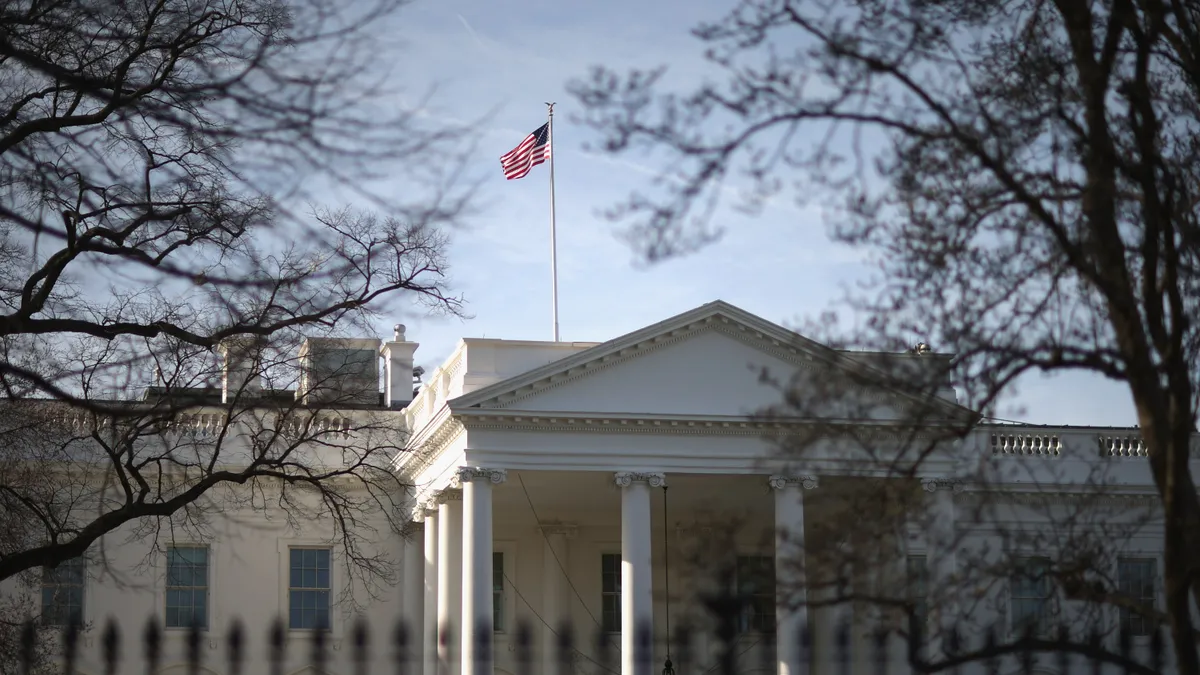President Joe Biden on Friday said he would nominate Michael Barr, a former Treasury Department official, to become the Federal Reserve’s next vice chair of supervision.
Barr helped to craft the 2010 Dodd-Frank Act while serving as assistant treasury secretary for financial institutions during the Obama administration. That legislation created the Fed role for which Barr is now being considered.
“Michael brings the expertise and experience necessary for this important position at a critical time,” Biden said Friday in a statement. “He understands that this job is not a partisan one, but one that plays a critical role in regulating our nation’s financial institutions to ensure Americans are treated fairly and to protect the stability of our economy.”
Barr would need to secure 50 or more votes in the Senate to be approved for the role — a prospect Biden has found particularly difficult with regard to potential banking regulators.
Saule Omarova, a Cornell University law professor whom Biden nominated to lead the Office of the Comptroller of the Currency (OCC), withdrew from consideration in December amid criticism from Republicans and some moderate Democrats who said her past writings and public comments on bank oversight revealed "radical" views.
Sarah Bloom Raskin, Biden’s previous pick for Fed vice chair of supervision, dropped her bid last month after it became clear she wouldn’t get the necessary Senate support. Sen. Joe Manchin, D-WV, said he couldn’t back Raskin because her more hawkish stance on climate change put her at odds with coal’s importance to his home state.
During Biden’s first week in office, Barr was floated as a possible contender to lead the OCC, but his candidacy drew pushback from progressive Democrats who said he could have been tougher on banks when drafting certain Dodd-Frank regulations.
Barr also served on the advisory board of the crypto firm Ripple from 2015 to 2017, a point some progressives have flagged as a potential conflict of interest. Barr wouldn’t be the first regulator candidate to draw fire from lawmakers over ties to fintech companies. Conservatives implied Raskin’s stint on the board of directors of Reserve Trust may have helped the company gain a master account with the Fed after its first application was denied.
Biden said Friday he would work with Senate Banking Committee Chair Sherrod Brown, D-OH, to move Barr’s nomination along quickly.
“Now more than ever, we need a full Fed Board — including a vice chair of supervision,” Brown said in a statement, according to Bloomberg.
Votes are expected in the coming weeks from the full Senate on several other Fed posts: Jerome Powell’s renomination as chair, Fed Gov. Lael Brainard for vice chair, and economists Philip Jefferson and Lisa Cook for open seats. The vice chair of supervision role has been vacant since former Gov. Randal Quarles’ term ended in October.
Brown urged Republican senators “to abandon their old playbook of personal attacks and demagoguery and put Americans and their pocketbooks first” in confirming Barr.
To show they opposed Raskin’s candidacy, all 12 Republicans on the Senate Banking Committee refused to attend panel meetings in which votes on the Fed nominees were scheduled, denying Democrats a quorum to move any of the candidates forward.
Politico first reported Barr’s emergence as a front-runner for the Fed supervision post last week. Barr did not respond to requests for comment from The Wall Street Journal or Bloomberg.
Ian Katz, managing director of Capital Alpha Partners, projected Barr has a 60% chance of confirmation, according to The New York Times.
Sen. Elizabeth Warren, D-MA, praised Barr in her 2014 book for helping to create a strong Consumer Financial Protection Bureau (CFPB), another offshoot of the Dodd-Frank Act.
In his treasury role, Barr opened the Office of Community Development, expanded the earned income tax credit, and helped to design the Community Development Financial Institutions Fund.
Barr serves now as the dean of the public policy school at the University of Michigan. In his writings there, according to The Wall Street Journal, he said, “the most important step economists and policymakers can take is to build a system that is more resilient to the uncertain risks we face.”
“It is important to be humble about our ability to understand new risks and predict financial crises,” Barr wrote.











